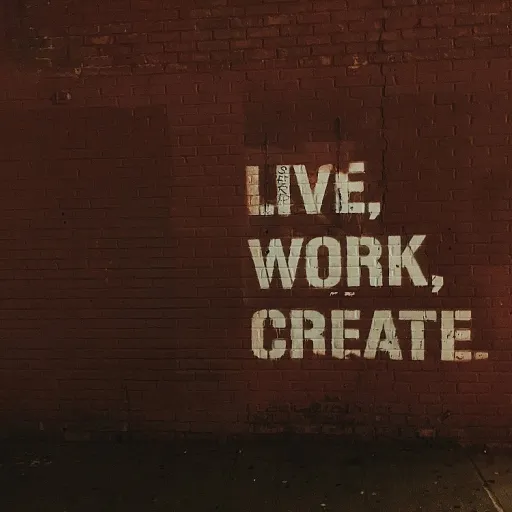
Understanding HR Integrations for Mental Health
The modern workplace is evolving, and so is the approach to mental health care, particularly through HR integrations. Understanding the intricacies of these integrations is crucial as organizations strive to create a healthy work environment where employees can thrive mentally and physically.
Bridging Health and HR
Organizations are taking significant steps to integrate mental health support into their HR frameworks. By doing so, they aim to provide comprehensive health benefits that address the challenges employees face today. This integration is not just about facilitating access to health resources but also about fostering a culture of mental well-being at the workplace.
Workplace Mental Health Initiatives
Many companies are implementing initiatives aimed at reducing stress and promoting life balance within the work environment. These initiatives include programs ranging from stress management workshops to employee assistance programs equipped to handle various mental health issues. Such proactive measures not only support employees but also enhance employee feedback on organizational culture.
Benefits of a Supportive Work Environment
A supportive and healthy workplace does more than just address mental health issues. It enhances employee well-being, making employees feel valued and heard. Providing these resources can significantly improve work life balance and employee satisfaction. As these programs become more embedded within the HR structure, organizations are better equipped to maintain a resilient and engaged workforce.
The Role of HR in Mental Health Support
The Pivotal Role of HR in Facilitating Mental Wellness
In modern organizational structures, HR departments hold a crucial position in establishing a healthy work environment that actively supports mental well-being. While it's common knowledge that HR is responsible for the recruitment and training of employees, its role in promoting mental health in the workplace is not as widely acknowledged. HR is instrumental in creating programs and policies that address the mental health challenges faced by employees. This includes the provision of health resources and support systems that are integral in reducing workplace stress and burnout. Through strategic initiatives, HR can foster a culture that prioritizes well-being and encourages employees to seek care when needed. A primary focus for HR is to ensure that employee mental health programs are not only accessible but also effective. This involves offering comprehensive health benefits that include stress management and mental well-being assistance. Organizations that prioritize these health initiatives often find that employees feel more supported and engaged, contributing to an overall healthier workplace. Moreover, HR plays a vital role in enhancing employee feedback mechanisms. By doing so, they can gauge employee well-being and implement changes to improve work-life balance. Listening to employee concerns and adapting policies accordingly can significantly impact employee mental health, leading to a more supportive work culture. Incorporating best practices for mental health support goes beyond simply providing resources. It involves creating an inclusive work culture where mental health awareness is openly addressed. HR should encourage regular discussions about mental health to lessen the stigma associated with mental health issues. For HR practitioners aiming to tackle ageism in the workplace effectively, recognizing how it disproportionately impacts older employees' mental health is essential. Delving into real-world examples of ageism in the workplace can provide valuable insights and enhance the inclusivity of mental health programs. Ultimately, the role of HR in mental health support is multifaceted and continually evolving. By embedding mental health initiatives into the core of organizational cultures, HR departments can create environments where employees thrive mentally and professionally.Key Features of Effective HR Integrations
Key Attributes of Successful HR Mental Health Initiatives
Enhancing mental health support in the workplace requires a comprehensive approach through effective HR integrations. Organizations must focus on creating a supportive and inclusive work environment where employee mental well-being is prioritized. Here are some vital features that contribute to the success of HR initiatives in addressing mental health challenges:- Comprehensive Health Resources: Improvements in mental health support can be achieved by providing access to a range of health resources. These may include employee assistance programs, on-site counseling, and stress management workshops.
- Proactive Stress Management: Implementing stress management strategies is crucial. Developing stress reduction programs and promoting work-life balance are essential to make employees feel valued and supported.
- Inclusive Work Culture: Fostering a culture that openly discusses and addresses mental health issues encourages employees to seek help without stigma. Organizations can cultivate a healthy workplace by encouraging dialogue and advocacy for mental well-being.
- Employee Feedback Mechanisms: Tailoring mental health initiatives to suit employee needs involves regularly collecting and analyzing employee feedback. This input is key to refining support programs and mitigating work-related stressors.
- Accessible Health Benefits: Robust health benefits that cover mental health care ensure employees can access necessary treatments and support—contributing to both individual and organizational well-being.
Challenges in Implementing HR Integrations
Overcoming Barriers in HR Integrations
Implementing HR integrations to enhance mental health support in the workplace is not without its challenges. Organizations often face a range of obstacles that can hinder the effective deployment of these initiatives. Understanding these challenges is crucial for creating a supportive work environment that prioritizes employee mental well-being.
Technological and Resource Limitations
One of the primary challenges is the technological infrastructure required to support comprehensive HR integrations. Many organizations may lack the necessary resources or expertise to implement advanced systems that can seamlessly integrate mental health support programs. This can lead to fragmented solutions that fail to provide the holistic care employees need.
Moreover, budget constraints can limit the availability of mental health resources, making it difficult for organizations to provide adequate support. Investing in technology and training is essential to overcome these barriers and ensure that employees feel supported in their mental health journey.
Cultural Resistance and Awareness
Another significant challenge is cultural resistance within the organization. Employees and management may be hesitant to embrace mental health initiatives due to stigma or a lack of awareness. Creating a culture that values mental health requires ongoing education and awareness programs to address misconceptions and promote a healthy workplace.
Organizations must actively work to foster a culture of openness and support, encouraging employees to seek help without fear of judgment. This involves training managers to recognize signs of stress and mental health issues and equipping them with the tools to provide effective support.
Balancing Work-Life Demands
Balancing work-life demands is another challenge that can impact the success of HR integrations. Employees often struggle to maintain a healthy work-life balance, leading to increased stress and burnout. HR initiatives must focus on enhancing employee well-being by promoting flexible work arrangements and stress management programs.
By addressing these challenges, organizations can create a supportive environment that prioritizes mental health and well-being. This not only benefits employees but also enhances overall workplace culture and productivity.
Impact on Candidate Experience
Enhancing the Candidate Journey Through Mental Health Support
When organizations provide robust mental health resources and support, the impact on candidate experience is profound. Prioritizing workplace mental health can lead to a healthier work environment, making candidates feel valued and cared for from the get-go. Candidates today are increasingly aware of the importance of mental well-being in the workplace, and organizations that address this upfront tend to have more success in attracting top talent. A supportive company culture that emphasizes stress management and work-life balance appeals to job seekers who prioritize their mental health. Moreover, offering comprehensive health programs and initiatives not only benefits employees but also enhances the organization's reputation. When potential candidates see that a company is committed to promoting a healthy workplace, complete with employee feedback mechanisms and mental health awareness initiatives, they're more likely to view the organization as an attractive place to work. Implementing effective HR integrations for mental health is crucial. They serve to enhance employee support systems, ultimately improving everyone's well-being. Such impact resonates through the hiring process, reinforcing the organization's commitment to creating an inclusive and healthy work environment. By fostering such an environment, candidates are naturally inclined to feel more comfortable and engaged during the recruitment process. They gain confidence that the organization they're considering shares their values around health and wellness, which significantly improves their overall candidate experience.Future Trends in HR and Mental Health
Anticipating the Evolving Dynamics in HR and Mental Health
Recognizing the interplay between HR integrations and mental health initiatives requires keen attention to emerging trends that could reshape the workplace. As organizations continue to enhance mental health resources, several trends are paving the way for the future.- Advancements in Technology: Digital platforms and applications are burgeoning as essential tools in delivering mental health support. From apps offering 24/7 access to professional care to AI-driven stress management programs, technology is transforming how employee mental wellness is addressed.
- Emphasis on Personalized Support: Personalization is becoming a cornerstone of effective mental health strategies. Through HR integrations, organizations are looking to tailor resources that cater to the unique mental well-being needs of employees. Personalization could be the key to enhancing employee satisfaction and engagement.
- Integration of Life Balance Initiatives: The work-life balance is no longer just a perk; it is a pivotal factor in fostering a healthy workplace culture. Well-designed HR integrations are coupling life balance initiatives with mental health support, ensuring employees feel valued and productive in their work environment.
- Proactive Stress Management: Forward-thinking organizations are shifting their focus from reactive to proactive stress management. By embedding stress-reduction strategies into the corporate culture, HR can better address workplace mental health challenges before they escalate.
- Collective Culture Shift: There's a growing momentum toward destigmatizing mental health issues by evolving workplace culture. Through ongoing health awareness programs and open dialogues, employees are encouraged to seek out support and express their stress concerns without fear.













